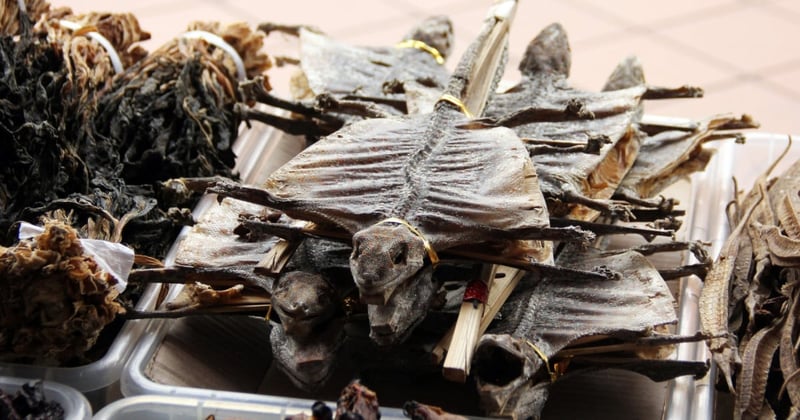
Beijing, China’s capital city has permanently banned the farming and trade of wild animals for consumption purposes as well as the eating of dogs and cats.
Top image credit: Shutterstock
Beijing’s decision to crack down on the consumption of wild animals is a significant step to protect animals and people, especially since the city is home to almost 22 million people.
It follows the cities of Shenzhen and Zhuhai to make such an announcement.
Kelly Dent, Global Director of External Engagement for World Animal Protection said:
“We welcome the decision by Beijing to permanently ban the consumption of wild animals.
“This permanent ban will help to keep people safe and protect animals from unnecessary suffering. However, if deadly outbreaks are to be prevented in future, we need to see this law extended to include a ban on the use of wild animals for entertainment, for traditional medicine and as exotic pets.
The current coronavirus pandemic is the latest wake-up call that we must end the cruel exploitation of animals. Some 60% of emerging infectious diseases are zoonotic, meaning they originate from animals, and what’s more, 70% of these are thought to originate from wild animals.
There is no better time for governments, corporations, and people to unite to curb the use of wild animals for entertainment, food, medicine or to be kept as exotic pets.
From now on, we need to practice social distancing between us and wild animals.”
What is the global solution?
Despite recent positive announcements out of China, all bans need to go further to end the global wildlife trade for good.
A global ban on the exploitation and trade of wildlife is essential. World Animal Protection is demanding world leaders act now to end the suffering of wild animals and protect our health.
Together we can end wildlife exploitation. Forever.
Join World Animal Protection's global campaign to ban the global wildlife trade.